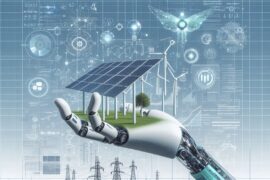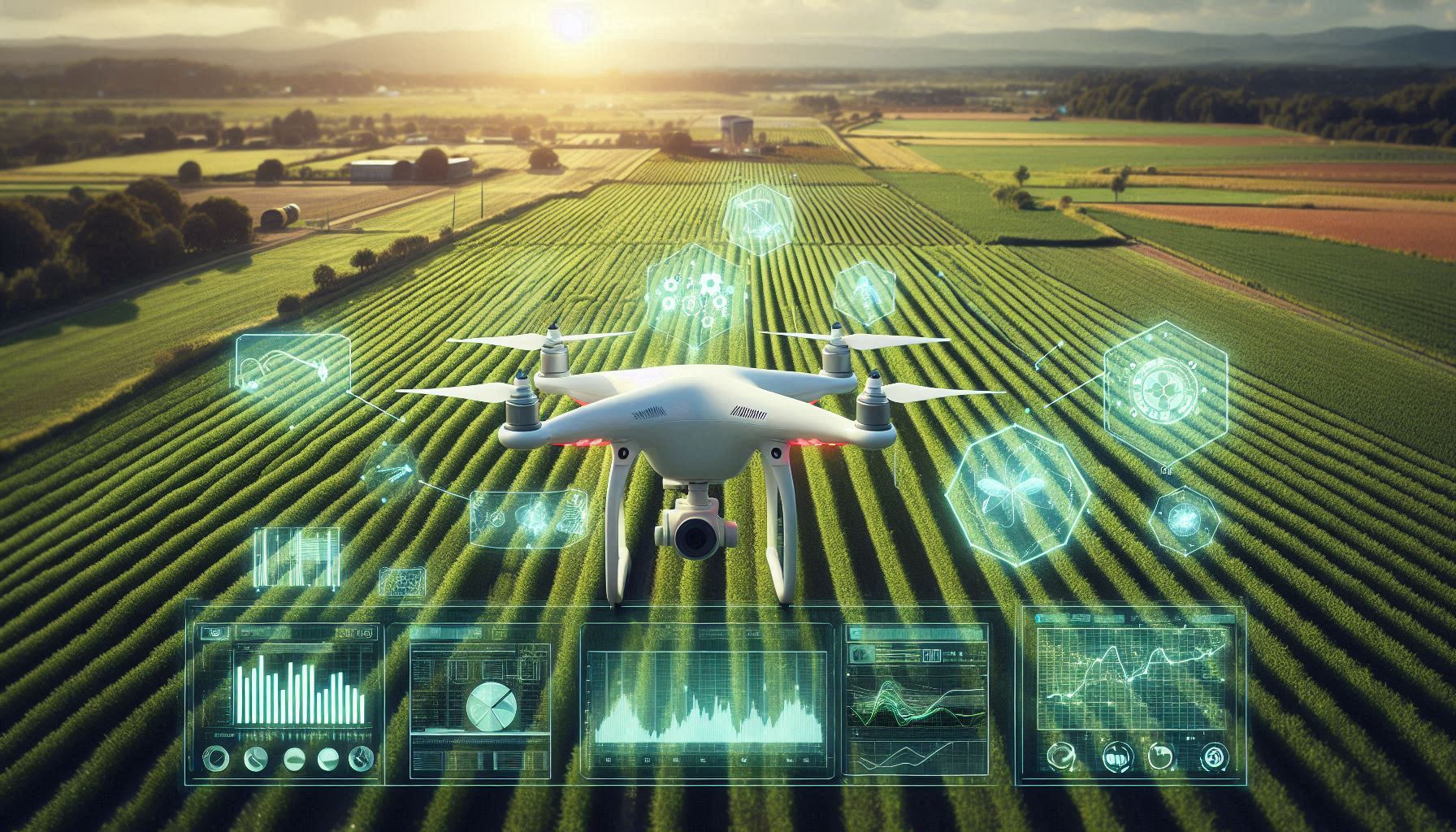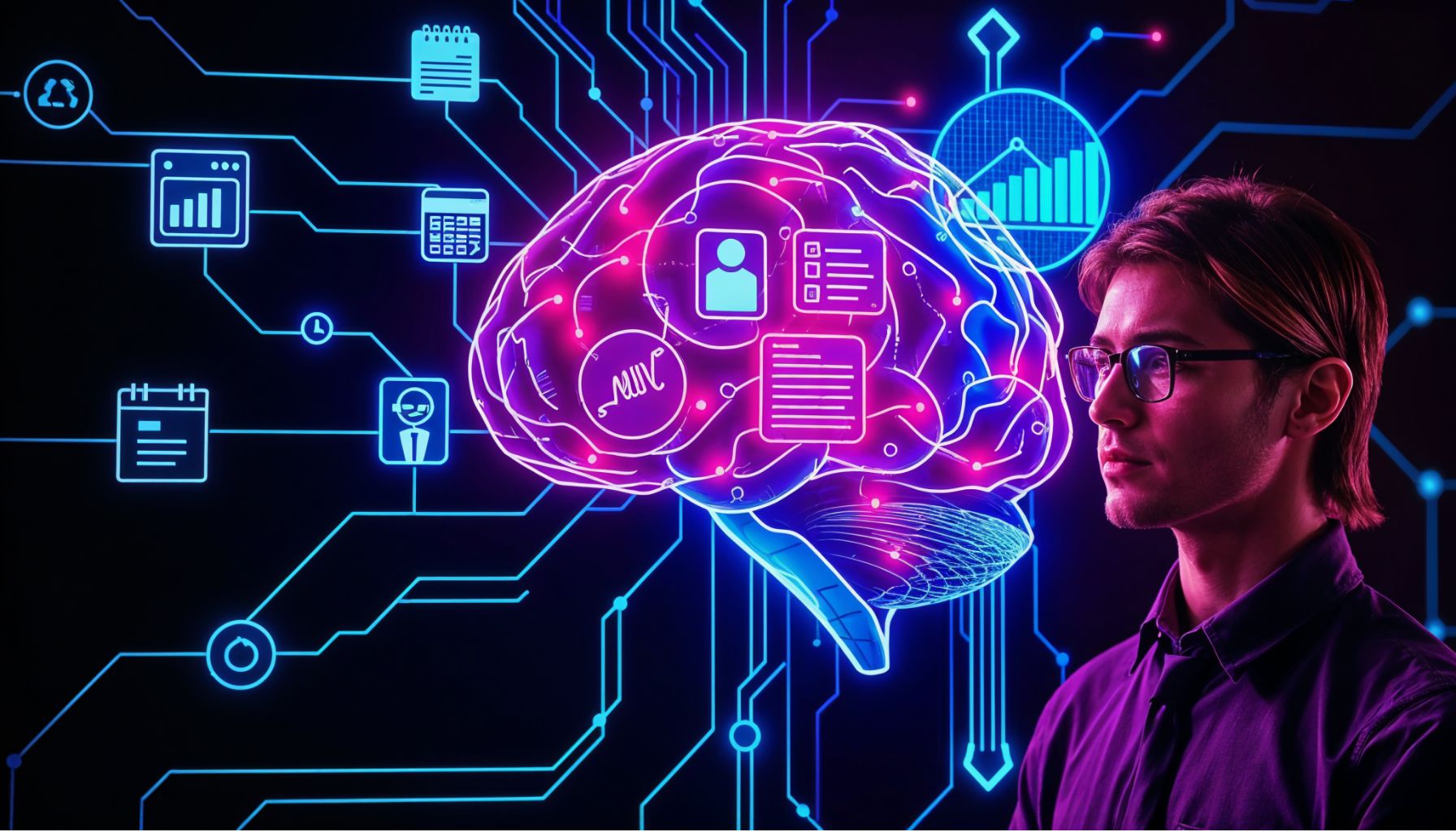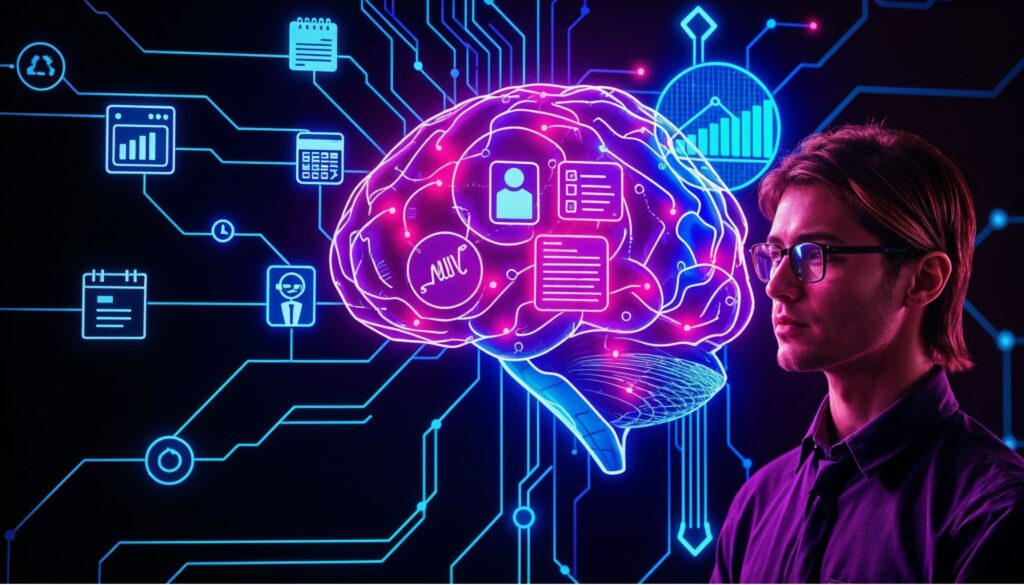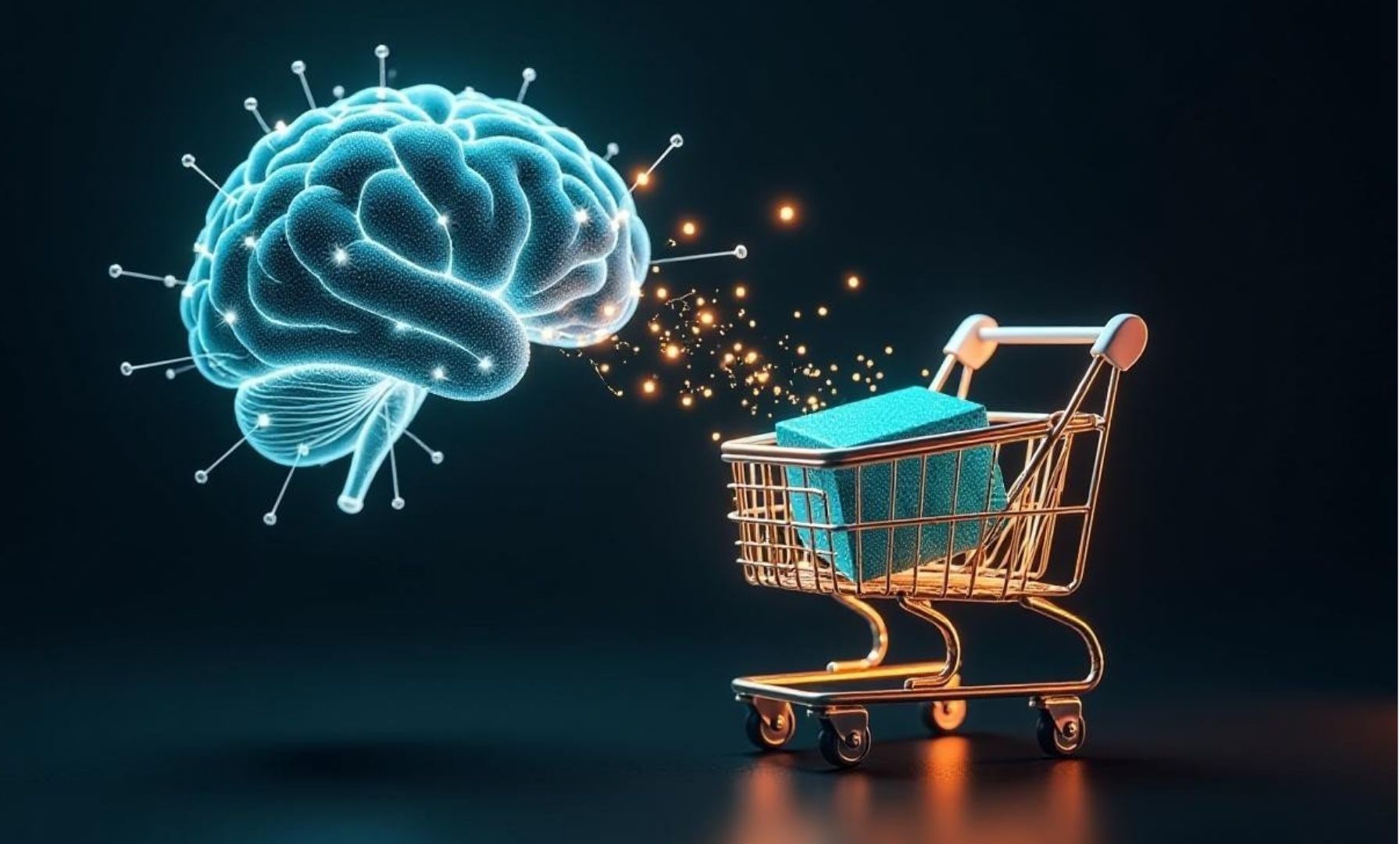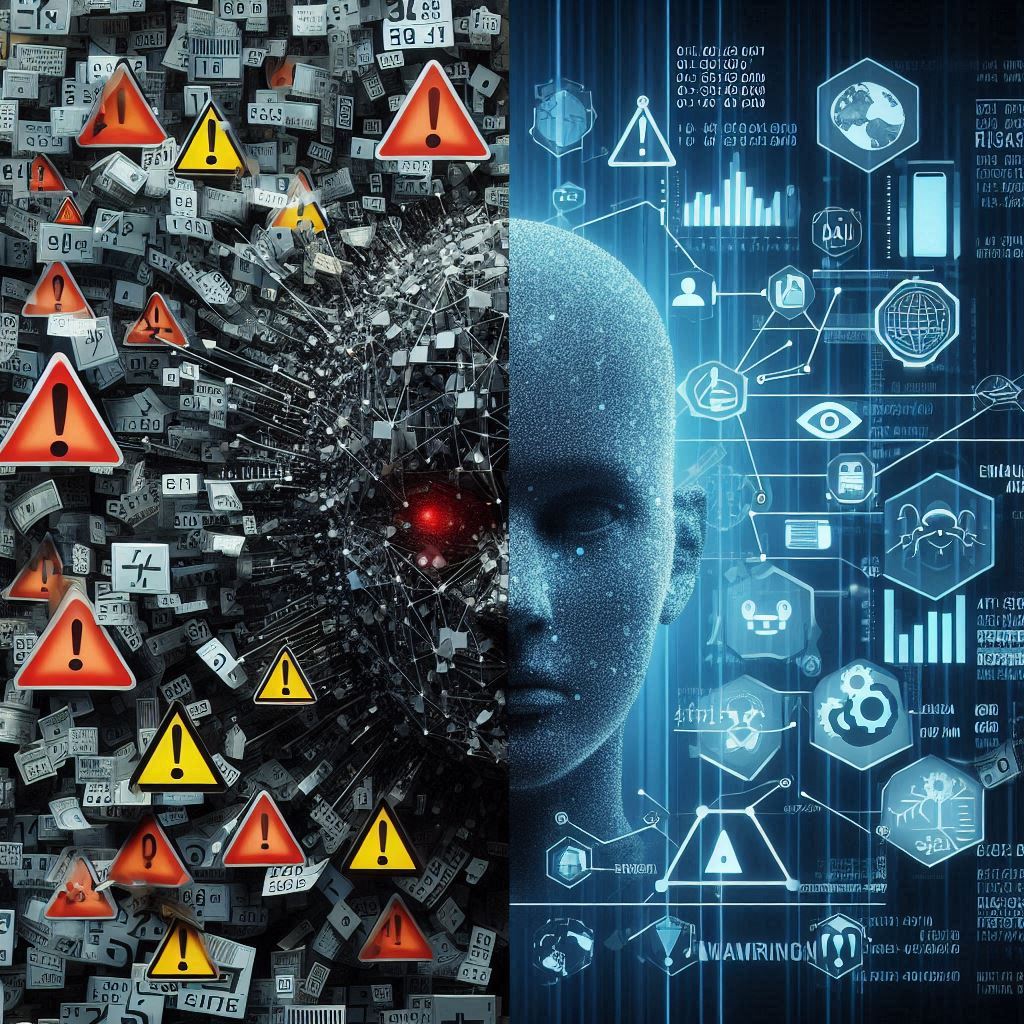Artificial intelligence (AI) has become a powerful tool for startups looking to grow and succeed in a competitive market. By using AI for growth, startups can improve their operations, make data-driven decisions, and enhance customer experiences. In this article, the ways AI for growth can drive startup success will be explored.
How AI for Growth is Transforming Startups
The adoption of AI for growth is transforming the startup landscape. AI can automate repetitive tasks, freeing up valuable time for founders and employees to focus on strategic activities. Furthermore, AI tools are being used to analyze vast amounts of data, which helps startups understand market trends, customer preferences, and potential challenges.
For instance, many startups use AI to analyze customer feedback. By examining data from social media, surveys, and reviews, startups can gain insights into what customers need and prefer. This allows startups to develop products and services that align better with customer expectations, driving growth more effectively.
Enhancing Customer Experience with AI
One of the most significant ways AI for growth is benefiting startups is through enhanced customer experiences. With AI-powered chatbots, customer inquiries can be handled instantly, which improves satisfaction and loyalty. Chatbots also allow startups to operate customer service 24/7, which is essential for global customer bases.
AI can also help startups personalize interactions with customers. By analyzing purchasing history and browsing behavior, AI systems can recommend relevant products to individual users. This level of personalization can increase customer engagement and encourage repeat purchases, which are key factors for growth.
AI for Marketing and Sales
AI for growth in marketing and sales is another area where startups are seeing benefits. With AI-driven tools, startups can run targeted marketing campaigns more effectively. AI helps identify the right audience by analyzing data on demographics, preferences, and online behavior. As a result, marketing efforts are more efficient and effective.
AI-powered sales tools are also helping startups optimize the sales process. For instance, predictive analytics can be used to identify leads that are more likely to convert into customers. This allows sales teams to focus on high-potential clients, leading to higher conversion rates and better revenue growth.
Streamlining Operations with AI
Efficiency is crucial for startup growth, and AI is being used to streamline operations in many ways. AI tools are helping automate tasks like data entry, scheduling, and inventory management, which saves time and reduces human error.
In addition, predictive maintenance powered by AI can help startups in industries such as manufacturing or retail. By using AI to predict when equipment or inventory will need attention, costly disruptions can be minimized. These efficiency gains contribute to reduced costs and smoother operations, supporting growth over time.
AI for Product Development
AI for growth also extends into product development. With AI, startups can analyze large amounts of data to understand what features or improvements customers desire. Machine learning algorithms can analyze feedback, identify trends, and provide insights for future products.
Some startups are even using AI to design new products entirely. For example, AI-driven design tools can create multiple versions of a product, allowing startups to test various options without investing significant time and resources. This rapid prototyping ability helps startups bring products to market faster, which can be a major growth advantage.
Managing Finances with AI
Financial management is another area where AI for growth is making a difference. AI-driven financial tools can help startups manage their budgets, forecast revenue, and optimize expenses. By using AI to analyze financial data, startups can gain insights into where money is being spent, where savings can be made, and how cash flow can be optimized.
Automated invoicing and payment processing are other AI-driven tools that help startups keep track of finances more efficiently. This reduces administrative work and ensures that financial processes are running smoothly, which is essential for sustainable growth.
AI and Decision-Making
One of the most powerful applications of AI for growth is in decision-making. By using AI to analyze data and predict outcomes, startups can make better-informed decisions. Whether it’s choosing a marketing strategy, deciding on a product launch, or entering a new market, AI provides valuable insights that can guide these decisions.
For instance, predictive analytics helps startups anticipate market trends and customer demands. This allows startups to stay ahead of the competition by adapting their strategies in real-time, which is crucial for growth in fast-changing industries.
Challenges of Using AI for Growth in Startups
While the advantages of using AI for growth are clear, challenges also exist. Implementing AI requires investment in technology and skilled talent, which may be difficult for some startups. Additionally, data privacy is a concern, as startups must ensure customer data is handled responsibly and complies with regulations.
However, with the right approach, these challenges can be overcome. Many AI tools are available as affordable software-as-a-service (SaaS) solutions, making them accessible even for small teams. Additionally, as AI technology continues to advance, more startups are finding ways to incorporate it into their growth strategies.
The Future of AI for Growth in Startups
AI for growth is expected to play an even larger role in the future of startups. As AI technology becomes more accessible, more startups will be able to leverage it for various aspects of their business. From automating tasks to providing real-time insights, AI will continue to support startups in reaching their growth objectives.
Moreover, as competition in the startup world grows, those that use AI for growth will have an edge. AI’s ability to streamline operations, enhance customer experiences, and improve decision-making will become essential in achieving sustainable growth.
Conclusion
AI for growth is changing the way startups operate and compete. By using AI tools, startups can automate processes, personalize customer experiences, and make smarter decisions. Although challenges exist, the benefits of AI for growth are undeniable, and startups that embrace it will likely see long-term success.
As the technology continues to evolve, the potential for AI in driving startup growth will only increase. For any startup looking to scale, AI is a valuable resource that can help navigate challenges and capitalize on new opportunities.


